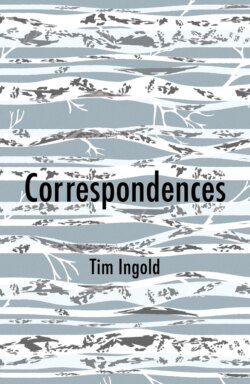Читать книгу Correspondences - Tim Ingold - Страница 7
Digitization and loss
ОглавлениеNowadays, this kind of letter-writing has all but ceased, to be replaced by the instant communication of phone and email. And with that, something of the care and spontaneity of letter-writing has been lost. Or, more to the point, the spontaneity of communication, since it is over in an instant, has become careless, stripped of the attention and deliberation that goes into fashioning lines on the page, in writing, and of the patience entailed in waiting: for the letter to reach its intended destination, and for the response to come back from the recipient. Conversely, care has lost much of its spontaneity: it seems more calculated and, by the same token, less personal, less imbued with feeling. It has become a service to be delivered rather than a recognition, in attention and response, of what we owe to others for our own existence as beings in a world. Now some might say that it is merely nostalgic to attempt to bring care and spontaneity back together again. I disagree, however, and I offer this book both as an example of how this can be done, and as a testament to the power of written correspondence in achieving it. For it is not a matter of going back into the past; it is rather about allowing the past once more to feel its way into the future. For life on earth to carry on, and to flourish, we need to learn to attend to the world around us, and to respond with sensitivity and judgement. Corresponding with people and things – as we used to do in letter-writing – opens paths for lives to carry on, each in its own way but nevertheless with regard for others.
In this book, I have compiled some of the ways I have personally corresponded, in writing, with everything from oceans and skies, and from landscapes and forests, to monuments and artworks. Ideally, I should have written these correspondences by hand. That I have written them on a keyboard is, for me, a shortcoming; that you should be reading them in print unfortunate. This regret is not a retreat into nostalgia, however, but a plea for sustainability. A world in which every communication is over almost before it begins, reducing life to a succession of instants, is simply not sustainable. Nor is it nostalgic to wish to preserve our capacities for humane expression. For we lose these powers at our peril. Never in human history, indeed, have they been at greater risk. We have stood by as words, severed from hand and mouth, have been converted into the liquid currency of a global information and communications industry. In hock to states and corporations, words have been reduced to mere tokens of exchange. And our technologies have evolved in step. Language has been distilled from the conversations of life, only to be inserted into the mechanisms of computation. Yet the much-vaunted ‘digital revolution’ will almost certainly self-destruct, probably within this century. In a world facing climate emergency, it too is manifestly unsustainable. Not only are the supercomputers on which it depends already consuming colossal quantities of energy; the extraction of toxic heavy metals for use in digital devices has also fuelled genocidal conflict around the world, and will likely render many environments permanently uninhabitable. Meanwhile, digitization continues to dissolve the archives of recorded history at an unprecedented rate.
Imagine a future in which all written words are tapped out, on keyboards or screens. To read these words requires a vision that cuts through paper or glass, in order to extract the meanings reflected from behind, rather than allowing itself to be detained at the surface. The linear traces of affect, which had once captivated the eyes of readers, are now written off as a distraction. They have been replaced by a vocabulary of emoticons, presenting surrogates for feeling rather than feeling in itself. With the expressive power of the line long forgotten, next to go will be the voice. The authorities have decreed that the musical qualities of vocal pronunciation, which had once so enchanted listeners as to lure them to follow along, or even join in, are held to distract from what is now believed to be the proper function of words, to convey information. So the voice is to be replaced by digital synthesizers, operated by neurotransmitters from the brain. In this brave new world, the lullaby, the lament, the carol and the hum, eviscerated of affect, are to be preserved in aspic, as mementos of a bygone past. Deprived of voice, people lose the capacity to sing. But this only compounds the earlier suppression of the hand, in the loss of its capacity to write. A society without handwriting is like one from which song has been banished. Yet it would take only a simple invention to bring it back: a hand-held tube, fitted with a tip and filled with dark-hued liquid. No digital interface can match the expressive potential and versatility of this instrument. Cheap, easy to use, requiring no external power supply, and leaving no pollution in its wake, it could secure the future of writing for countless years to come.
